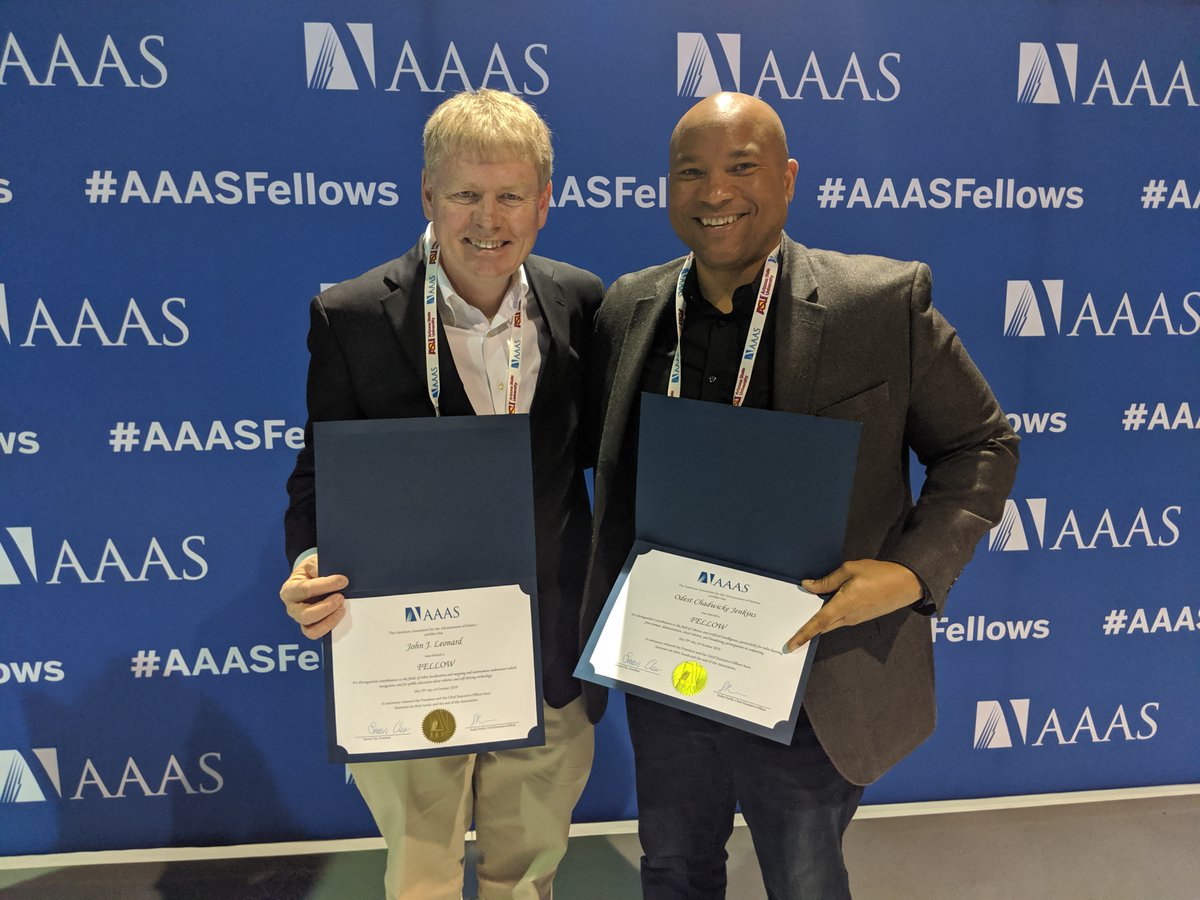Chad Jenkins named Fellow of the AAAS
Jenkins was recognized for his work on human-robot interaction and methods that enable robots to learn human skills.

 Enlarge
Enlarge
Prof. Chad Jenkins has been named a newly elected fellow of the American Association for the Advancement of Science. AAAS is the world’s largest general scientific society, and the publisher of the journal Science.
Each year the organization’s council elects members whose “efforts on behalf of the advancement of science or its applications are scientifically or socially distinguished,” according to AAAS. Jenkins was recognized for his work on human-robot interaction and methods that enable robots to learn human skills.
“It is an amazing honor to be recognized as a AAAS Fellow,” Jenkins says. “I am especially pleased to be recognized for both my scholarship in robotics and efforts to broaden participation in computing. I hope to continue Michigan’s leading example of advancing both excellence and equal opportunity.”
Jenkins’ research explores how to enable robots to learn from human demonstration in complex environments. In recent years, his work also explored the use of robot systems for assisting aging populations and people with disabilities. His work has been supported through a number of prestigious awards, including a PECASE award, an NSF CAREER Award, an ONR Young Investigator Award, and a Sloan Research Fellowship.
His group’s most recent project was a new algorithm to help robots go from structured environments like factories to complex, unstructured places like a household. The advance lets machines perceive their environments orders of magnitude faster than similar previous approaches, representing a big step toward home helper robots.
The team demonstrated how their algorithm and a Fetch robot can correctly perceive and use a set of drawers, even when half-covered with a blanket, when a drawer is half-open, or when the robot’s arm itself is hiding a full sensor view of the drawers. This work was published in Science Robotics.
Jenkins provides a guiding example of leadership in society for advancing robotics and computing and its accessibility to everyone. One visible example of this is a 2013 TED Talk he gave with Henry Evans, who has quadriplegia and the inability to speak, which has been viewed over 1 million times. This talk inspired many people with disabilities to explore how robotics can help people experience the world in new ways. He has also given numerous keynote talks to audiences of secondary and community college educators, industry leaders, churches, and diverse groups of emerging scholars in computing. He was named a council member for the CRA Computing Community Consortium in 2019.
This year’s AAAS Fellows will be formally announced in Science magazine on Nov. 26 and will be honored in February at the AAAS annual meeting in Seattle, Washington.

 MENU
MENU